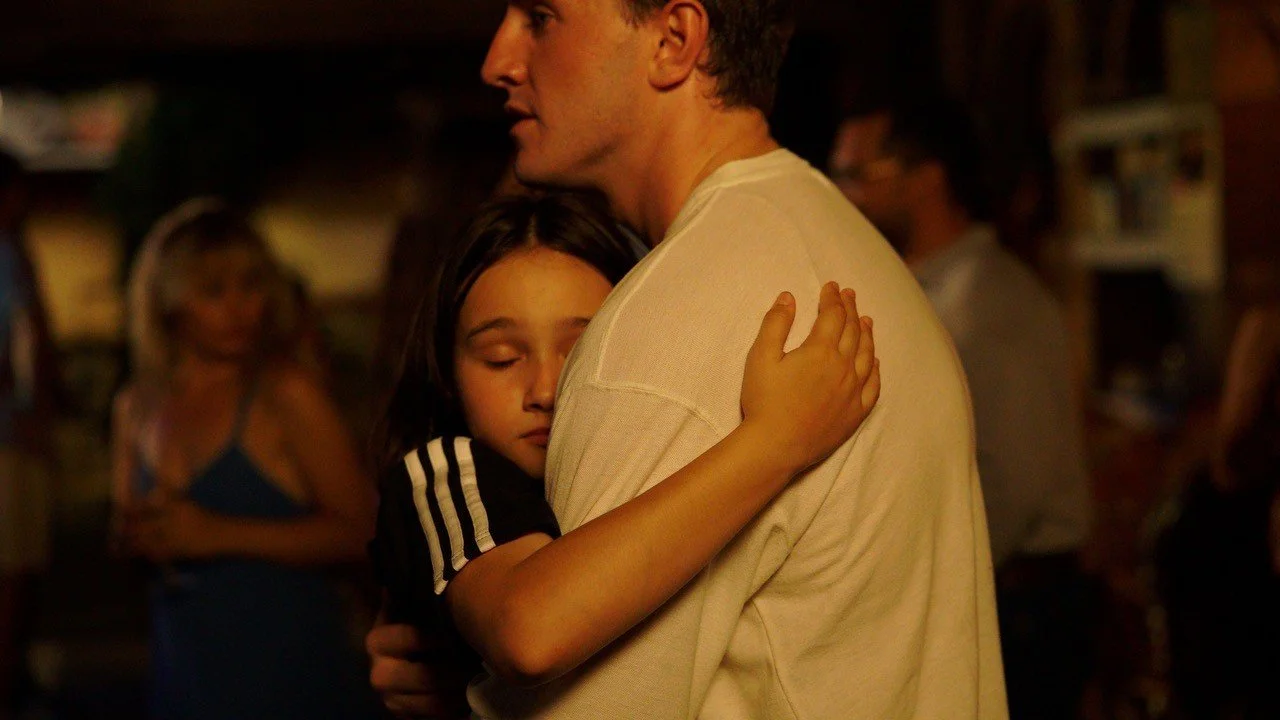Aftersun: Sparkling Debut Ponders Father-Daughter Love and the Essence of Memory
By Karen Gordon
Rating: A
Writer-director Charlotte Wells’ affecting debut film Aftersun is a bit of a miracle.
The film is about fathers and daughters. It’s about a daughter trying to understand her father from the distance of years. But it is also about memory. About the way we remember events, and how that deepens and changes through our lives.
Paul Mescal is 31-year-old Calum, who has taken his 11-year-old daughter Sophie (Frankie Corio) on vacation to a resort in Turkey. Sophie is in the sweet spot between little girl and adolescent. With her father she’s often still the little girl. But there is a group of teens at the resort that she's drawn to. She and a boy, not much older than she is, circle around each other.
Calum is boyish and playful. There’s an easy affection between father and daughter. He’s not heavy-handed, but he is protective and emotionally attuned to her. It’s clear that he loves her fiercely and wants to open the world to her, to give her experiences. But there’s more going on. Sophie sees that he’s also struggling, financially and emotionally.
We are seeing all of this through memory, the lens of the adult Sophie (Celia Rowlson-Hall) who is reflecting on her father, about the vacation, this precious time they had together, trying to get a handle on who her father was at that point in his life. But it's more complicated.
The memories are hers, but from when she was a child. And now as an adult about the same age he was on that vacation, she’s looking at that time again, hoping to get more understanding of him.
Wells give us the story of the vacation, and Sophie’s memories almost in an abstract way. One of the little miracles about Aftersun is that there isn’t a conventional narrative. Instead, it comes at us in snippets. Bits and pieces of what Sophie remembers from the vacation. There are short scenes, images, Polaroid pictures, and some camcorder footage, slightly faded or blurred.
The film structure is meant to mimic the way we remember things. We don’t fully remember events as if they were on film. Odd things stick with us. On top of it, what we’re seeing are Sophie’s impressions as an 11-year-old, things that aren’t necessarily easily understood by a child.
This business of making a film without a conventional narrative is notoriously difficult. So, how does this all knit together so beautifully? That’s the miraculous thing about what Wells has done with Aftersun. It’s so thoughtfully put together.
The film resists so much of what we usually see in a conventional film. Back story, explanations, full scenes. And yet there isn't an absence of coherence or emotion in the film. It moves along gingerly, but the characters, the emotion, that sense of love quietly weaves us in, carries us through the movie.
A big part of the success of the film is its leads, whose challenge was to create characters we could hold onto and that who we wanted to follow, even though we see them in small bites. The performances must be both casual and yet give us insight into the characters. Both Corio, in her first role as young Sophie, and Mescal as Calum breathe complexity into characters.
Without being explicit, and by leaving the details up to us to intuit, Wells has given us a film that has a tonal delicacy yet a deep emotional core. It’s a beautiful debut film.
Aftersun. Written and directed by Charlotte Wells, Starring Paul Mescal and Frankie Corio. In theatres October 28.



